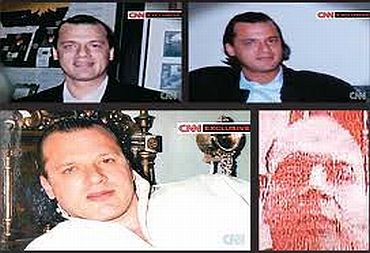
Rediff.com's Vicky Nanjappa examines the latest revelation in the 26/11 Mumbai terror investigation.
India has repeatedly voiced its protest against the Pakistan establishment funding terror against India and also shielding terrorists. While Pakistan continues to deny this, an article published by the US-based public interest website Pro Publica written by Sabestian Rotella confirms the fact that the Inter-Services-Intelligence had a big role to play in the 26/11 Mumbai terror attack, which left nearly 166 people dead.
While the article speaks in length about the interrogation of David Headley, Indian agencies told rediff.com that while Headley has spoken more about what they already knew, this only confirmed the extent of the ISI's involvement in the terror attack.
The Intelligence Bureau says that they have always said that no attack launched from Pakistani soil is possible without the blessings of the ISI and no terrorist outfit can survive in Pakistan unless the ISI wants it to.
The IB also points out that there is a lot of similarity between the statements given by Headley and Sabhauddin Ahmed, who is an accused in the attacks on the Rampur Central Reserve Police Force camp and the Indian Institute of Sciences in Bengaluru.
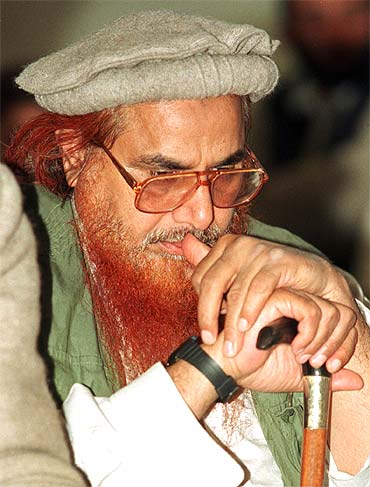
The ISI picks key operatives such as these and extra attention is paid to them. Both Headley and Sabahuddin Ahmed were received by ISI officials when they set foot in Pakistan. Their entire journey, be it their accomodation, training or even departure at the airport was overseen personally by an ISI official.
However one cannot draw a comparison to the role played by these two men and Headley was a much bigger player in this network and he was bound to get more attention and guidance from the ISI.
An official who interrogated Headley in the US confirms the Pro Publica report and says that Headley's journey began when he met Jamaat-ud-Dawaa chief Hafiz Saeed in Pakistan. He was introduced to the Lashkar-e-Tayiba leadership through the ISI who was looking for an American national to carry out the scouting job for them in India since American nationals were not screened as much as citizens of other countries.
The NIA said that during his interrogation, Headley made it very clear that all through he had the guidance of the ISI, his main interaction was with a man named Sajid Mir, who the IB confirms was a former ISI officer now with the Lashkar.
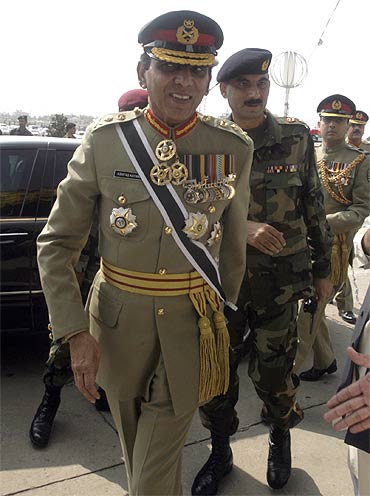
Headley, in his own words says, that his first stint with the ISI was when he was detained for trying to smuggle arms into India. They saw potential in him and handed over documents regarding India and this is approximately the time when the idea to scout targets in India was planned. All through the operation, his handler was an ISI officer named Major Iqbal who coached Headley on the use of cameras and map making while undertaking a reccee.
Headley told the NIA that the training was very scientific and very often he was taken to the Lashkar's camps, where he underwent training.
The NIA says that the Headley's training was not held in camps where there were other cadres. At no point of time did the ISI want this information to leak since Headley was their point man and the 26/11 attacks have shown what a thorough job he had done.
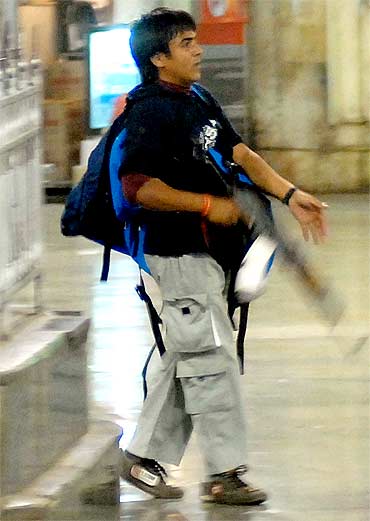
Headley was later sent to Mumbai to survey the targets and it was Major Iqbal who handed him nearly Rs 10 lakh to carry out this operation.
Headley's call records would however suggest that he was in constant touch with this man, but the number he kept calling was an American number. Intelligence agencies said that ISI operatives usually tend to use number of other countries since they would want to keep their location a secret and often bounce calls from other countries.
During the interrogation, Headley terms Major Iqbal as the mastermind, but the NIA and the IB say that it would not be right to term the major as the sole mastermind as an attack of such a huge magnitude cannot be planned by a solitary person.
"He could be called as Headley's mastermind, but then we are pretty sure that the entire Pakistani establishment was aware of what was cooking and they played along."
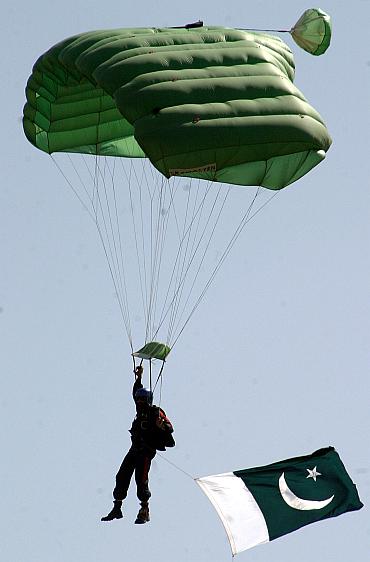
Another fact that Headley has confirmed to the Indian agencies regards the training the other operatives got from the Pakistan Navy. This was a fact that the Intelligence Bureau had told the rediff.com a couple of days after the attack.
The IB had said there is a special group known as the Musa Company, which first imparted basic training in Thakot, later trained these ten terrorists at Karachi where they underwent naval training in rough weather sailing.
Prior to this meeting, the ten terrorists had met at Muzafarabad where an officer of this group briefed the Lashkar cadres.The elite wing of the Pakistan Navy was involved in this attack and it had trained the ten terrorists for over three months on operating from sea. When these men gained entry into India it was evident that it was a military-style operation undertaken with martial precision.
Headley told the NIA that the Pakistan Navy had played a very crucial role in this attack. Headley said that an officer named Abdur Rehman had given technical advice to the Lashkar on some aspects. It was at that meeting in Muzafarabad the Lashkar and the Pakistani Army's Special Services Group had discussed the landing points and also on how they could hijack a vessel and gain entry into Indian waters.
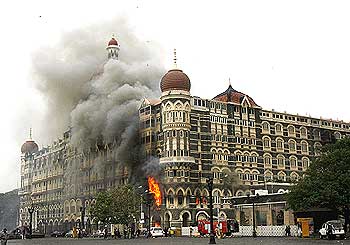
The IB says that the love affair between Pakistan terror groups and the ISI will continue as long as terrorism exists on this planet. "There is no way in which both can do without each other."
This fact was also reiterated by Stephen Tankel, author of the book Lashkar-e-Tayiba, From 9/11 to Mumbai. He says that the ISI will continue to support groups such as the Lashkar since they are useful vis- -vis India.
"No matter how much pressure there is from any quarter, the ISI would continue to control these groups since they feel that letting go of them will lead to a major insurgency in Pakistan," Tankel said.